Thousands of flights later: Retired ThedaStar nurse remembers the beginning of flight nursing in Fox Valley
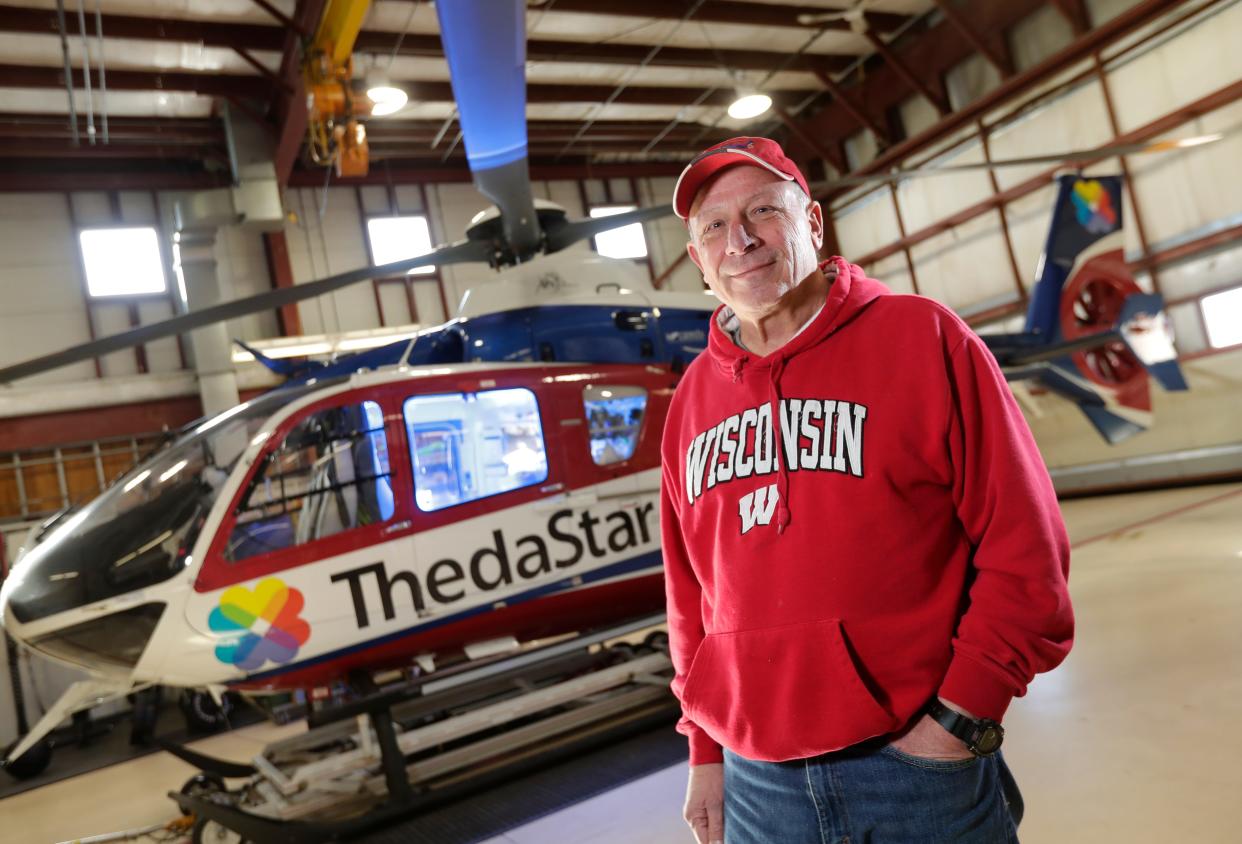
Mark Coenen was there when ThedaStar’s first flights took off over 30 years ago in the Fox Valley.
When he first got to what was then named Theda Clark Medical Center, staff were rallying in the community to help the hospital put together enough money to buy an aircraft.
Since then, ThedaStar has completed over 15,000 flights to provide emergency medical transport in northeastern and central Wisconsin. Coenen himself has been part of a majority of them and seen ThedaCare Regional Medical Center-Neenah become the Fox Valley’s only Level I or Level II trauma center, the highest levels of surgical care for trauma.
Coenen retired early this year after building a 36-year career as a flight nurse. But that was never the plan.
Coenen, who lives in Menasha, took a job in a local emergency room in California, and when he moved back to Wisconsin he took another job as an orderly at ThedaCare because it was what he was familiar with. After a couple years into the job, he decided to make a career out of it and went back to school for a nursing degree.
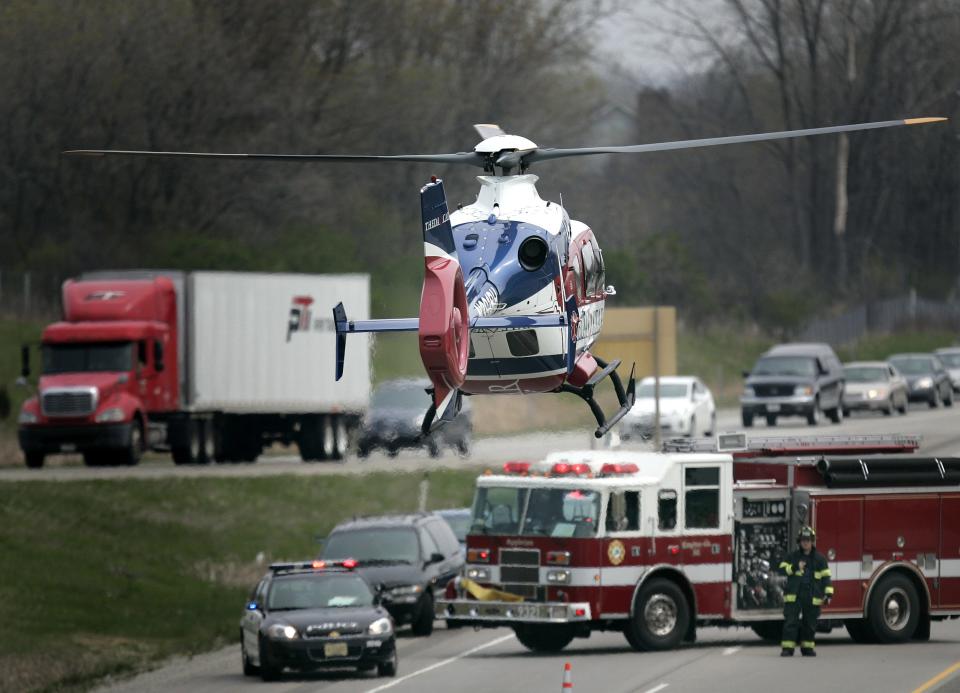
ThedaStar’s helicopter program had just started expanding between 1986 and 1987. When the program staff approached him, Coenen thought he’d give it a shot.
“It was a new venture,” Coenen said. “Nobody was actually sure where it was going to go or how it was going to go but I took a chance.”
At the time, ThedaStar was only at its outset of what flight nursing would become now —and Coenen was also there to witness the start of comprehensive health care in the region in many ways, too.
When ThedaStar launched in June 1986, it was the third air ambulance program in the state and the only one north of Milwaukee or Madison.
About 70% of ThedaStar’s flights are medical transports to and from hospitals, such as cardiac and stroke patients. It also regularly responds to crashes. Typically, ThedaStar responds to two flights a day, but sometimes they can respond to eight incidents in just 24 hours, Coenen said.
Their nurses are busiest in the summer, with motorcycles, boats and outdoor activities causing more injuries.
Rapid air transport was a “rudimentary” service when it began, and Coenen remembers having limited equipment in the helicopter with him. Now, the helicopter is essentially its own emergency room in the sky, carrying items such as IV pumps, ventilators, and monitoring equipment. Some things weren’t even provided in an ER years ago like a cardiac balloon pump.
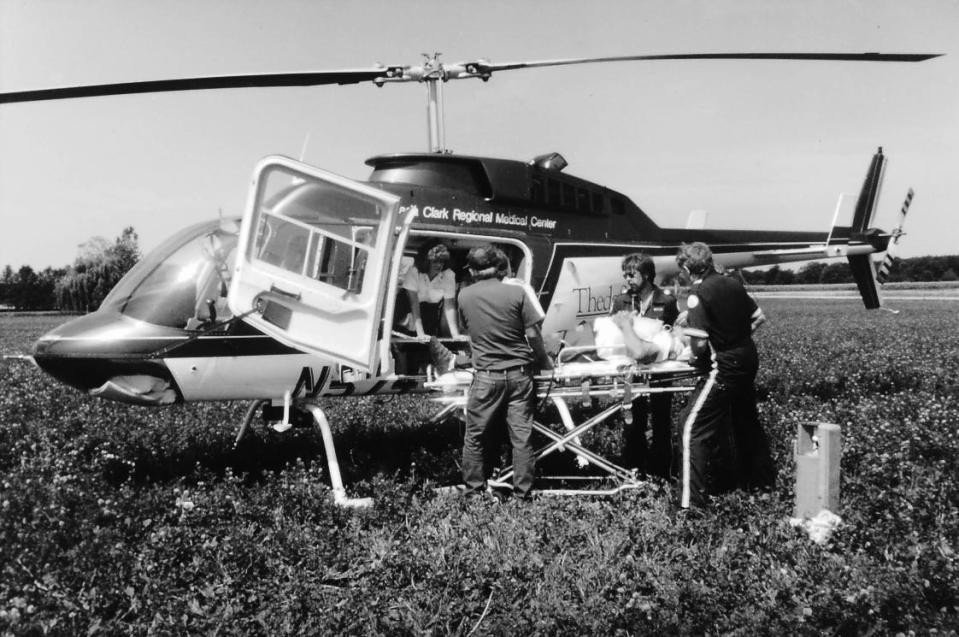
The level of aggressive treatment has also transformed in the decades of health care Coenen has witnessed. The interventions performed now for heart attacks and strokes were not available when he was first starting out. And every minute counts.
“Rapid transport means more now than it ever did,” Coenen said.
With air transport’s new urgency comes a heightened level of responsibility and independence from its leaders. Coenen has come to learn that flight nurses need to be able to make decisions on their own and stand by them when they come back to the hospital — the hardest decision may be to make a decision.
And he’ll have to answer to doctors back at the hospital, he explained.
“You have to be able to accept the responsibility for it,” Coenen said. “There are reasons to do everything, and there are reasons not to do it.”
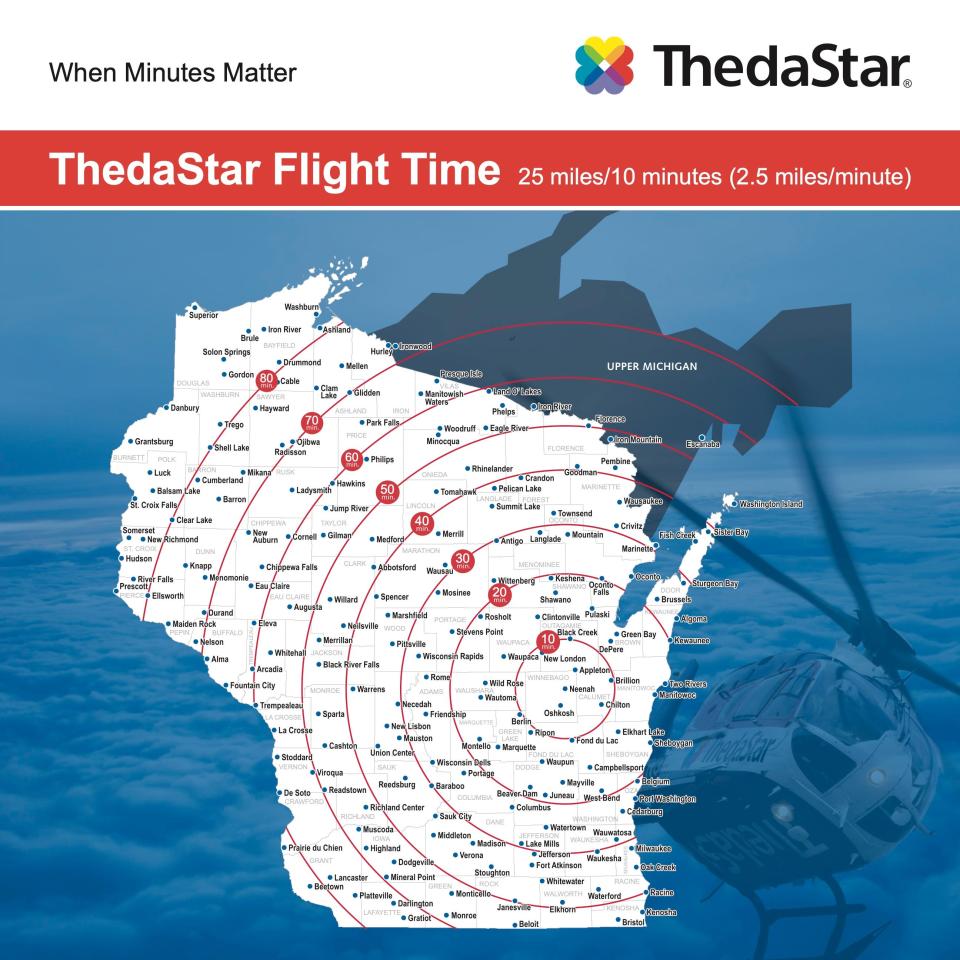
Coenen is ready to go into retirement and enjoy his leisure time now. Relaxing is going to feel different after coming into work ready to face crises and people in sometimes their scariest moments.
Coenen has to introduce himself to people at their "worst" moments. By the time he's called in on ThedaStar, the patient has possibly just faced their lowest point.
"If you work in critical care — whether it's in the ICU or the emergency room or you work in a helicopter — you're typically seeing patients at their worst," Coenen said. "That's the worst day they probably ever had in their life, and you have to understand that and you have to be more accepting of the circumstances they're in."
But it's still possible to keep a good attitude and it's important to have one, Coenen advises new flight nurses. He acknowledges he's just one of up to 100 health care and emergency professionals coming together to provide critical care for a patient.
"These patients now live and they're discharged from the hospital, they go back to work and back to their families — they go on with their lives and a lot of them don't know how lucky they were because they don't remember," Coenen said. "And that's OK with me. But I know."
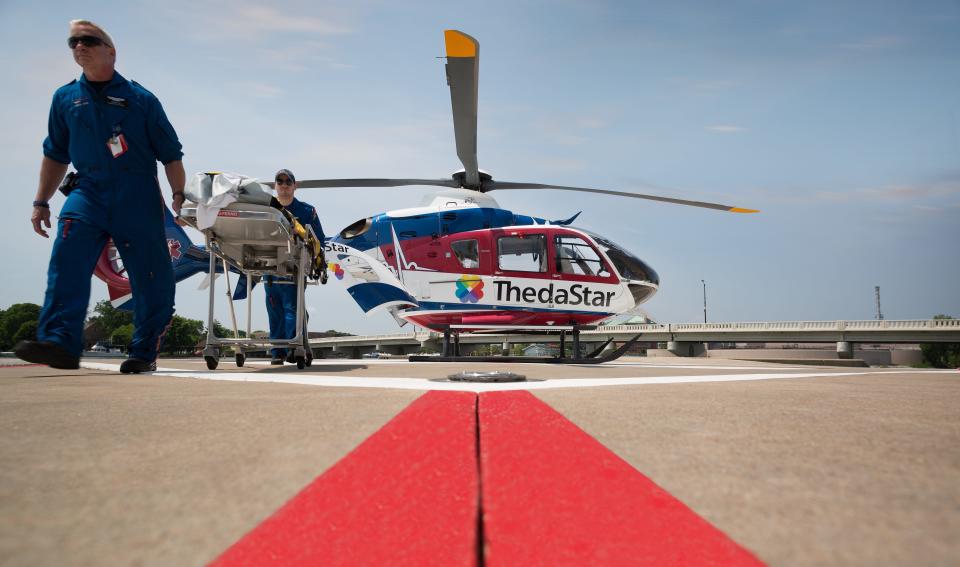
Benita Mathew is a health and science reporter for the USA TODAY NETWORK-Wisconsin. Contact Benita at bmathew@gannett.com. Follow her on Twitter at @benita_mathew.
This article originally appeared on Appleton Post-Crescent: Thousands of flights later, retiring ThedaStar nurse recalls start

